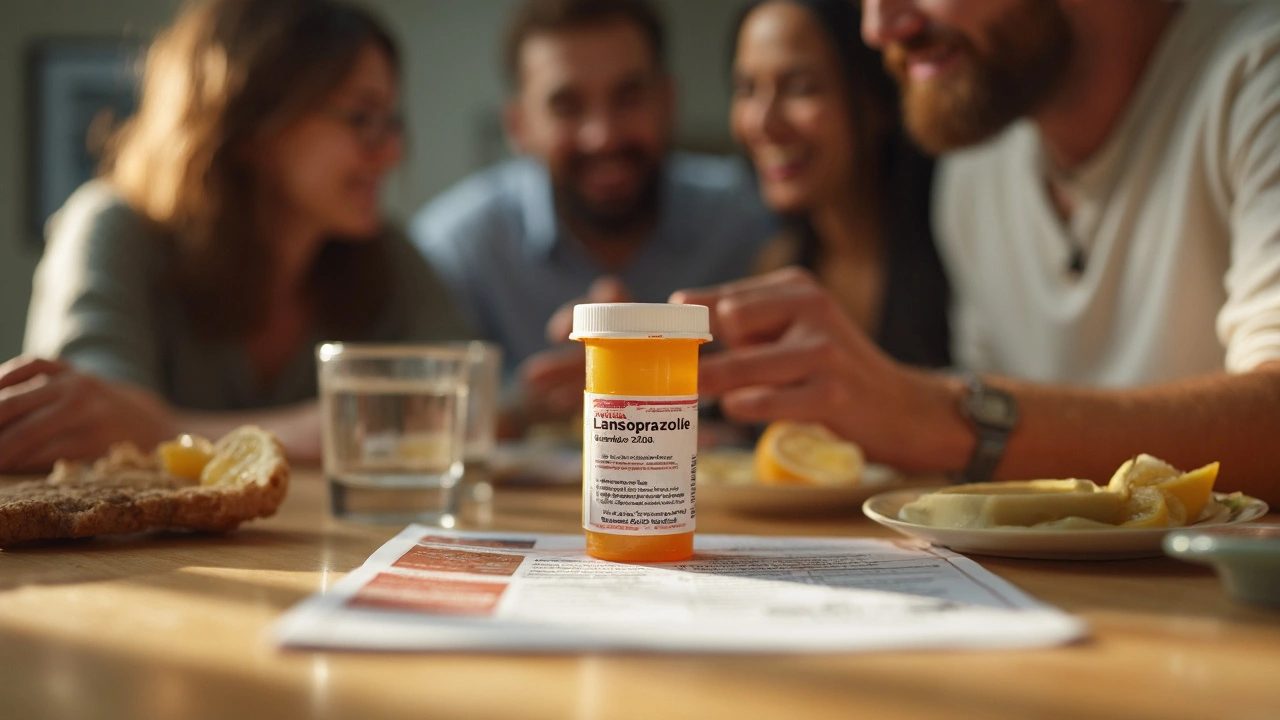Heartburn Relief: What Works, What Doesn't, and Real Answers
Heartburn hits at the worst times: after a big meal, late at night, or even when you just want to enjoy a simple snack. That burning feeling creeping up your chest? It’s more than annoying—it can wreck your day or your sleep. So how do you stop it fast and, even better, for good?
The go-to advice is simple: avoid trigger foods. Think spicy stuff, tomato sauce, chocolate, caffeine, and heavy fried meals. But what if you love pizza or coffee? Nobody wants to live on bland food. Small changes matter more than total restriction. Try eating smaller portions, don’t eat late at night, and swap to low-acid options where you can.
When quick relief is all you care about, over-the-counter (OTC) meds like antacids (Tums, Rolaids, Maalox) usually do the trick. They work fast, neutralize acid, and take the sting out. But if you’re popping them daily, that’s a sign there’s a bigger problem underneath. Proton pump inhibitors (like Prilosec/omeprazole) or H2 blockers (like famotidine and ranitidine) cut the acid production at the source and are a better fit for ongoing issues—just don’t use them long-term without talking to a doctor first.
Science backs up these meds. A 2024 review in JAMA Internal Medicine found that PPIs help around 8 out of 10 people with frequent symptoms, but you do have to give them a few days to kick in. Still dealing with burning or regurgitation? It’s time to double-check your habits: Are you lying down right after eating? Wearing tight belts? Smoking? All of that can make things worse. Even being a few pounds overweight can crank up the pressure inside your belly, pushing acid where it doesn’t belong.
Some people swear by natural fixes like chewing gum (boosts saliva to wash down acid), ginger tea, or baking soda in water. These help a little, but there’s not much clinical evidence behind them. What does help, however, is popping your bed’s head up a few inches—seriously, a slight incline at night can keep acid in your stomach where it belongs and cut down on night-time heartburn.
If you’re taking other meds (like painkillers, muscle relaxers, or asthma meds), ask your pharmacist if they could be making things worse. This isn’t rare—some meds relax the muscle that keeps stomach acid down.
And if you hear weird advice (“Drink milk!” “Eat a banana!” “Just deal with it!”), know this: milk can actually trigger more acid later, bananas are hit-or-miss, and you definitely don’t have to just suck it up.
Stubborn heartburn or pain that doesn’t quit? Don’t just wish it away. Frequent heartburn can signal GERD (gastroesophageal reflux disease), which deserves proper attention. Sometimes it looks like chest pain or chronic cough—things you shouldn’t ignore. Reach out to a healthcare pro if symptoms get worse or stay put for weeks. Early care means better relief and fewer surprises down the road.
How and Where to Buy Zantac Online in 2025: Safe Options, Prices, Legal Status
by philip onyeaka Aug 25 2025 8 MedicationsCan you still buy Zantac online? What’s legal in 2025, where to shop safely, prices, and the best alternatives to ranitidine. Simple steps and safety checks.
READ MOREPrevacid: How This Acid Reducer Changes Everything for Heartburn Relief
by philip onyeaka May 25 2025 12 Health and WellnessPrevacid, also known by its generic name lansoprazole, offers a powerful way to manage heartburn, acid reflux, and stomach ulcers. This article explores how Prevacid works, tips for getting the most from it, risks and side effects, and when to talk to your doctor. Unpacking both interesting facts and practical guidance, you’ll get the real story on what sets this medication apart for stomach acid control.
READ MORE

